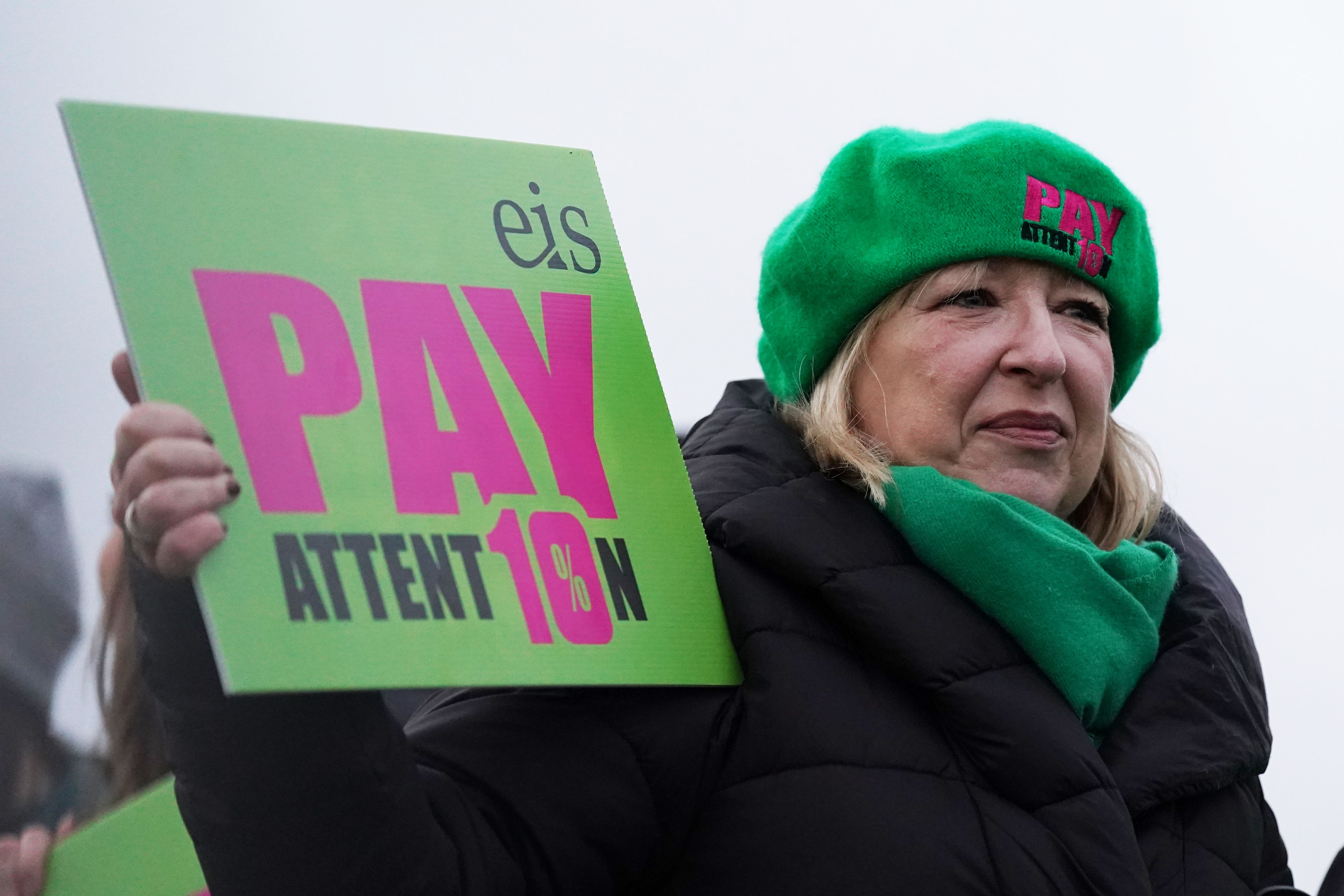Teacher strikes in Scotland to go ahead next week after no new pay offer made
Leaders of the EIS union said they will be considering the next steps in their campaign for a 10% wage rise for teachers.

Your support helps us to tell the story
From reproductive rights to climate change to Big Tech, The Independent is on the ground when the story is developing. Whether it's investigating the financials of Elon Musk's pro-Trump PAC or producing our latest documentary, 'The A Word', which shines a light on the American women fighting for reproductive rights, we know how important it is to parse out the facts from the messaging.
At such a critical moment in US history, we need reporters on the ground. Your donation allows us to keep sending journalists to speak to both sides of the story.
The Independent is trusted by Americans across the entire political spectrum. And unlike many other quality news outlets, we choose not to lock Americans out of our reporting and analysis with paywalls. We believe quality journalism should be available to everyone, paid for by those who can afford it.
Your support makes all the difference.Teachers leaders have said strikes planned for Scotland’s schools next week will go ahead after talks failed to produce an improved pay offer.
Discussions took place on Thursday involving the Scottish Government, local authority leaders and teaching unions.
But Andrea Bradley, the general secretary of the EIS union, said that, despite “warm words”, politicians, ministers and council leaders in the local government body Cosla had “failed to come to the table with a new pay offer to Scotland’s teachers”.
Cosla said afterwards that they “remain a distance apart in terms of a settlement” with the unions.
The EIS has confirmed that a rolling 16-day programme of strikes – which will see union members take action in two local authority areas each day – will get under way on Monday.
The union’s national executive committee will meet on Friday to discuss its next steps as part of its campaign.
Unions have already rejected a pay offer which would see most teachers receive a 5% wage rise, although the lowest earners would get an increase of almost 7%.
However, Scottish Education Secretary Shirley-Anne Somerville has insisted the 10% teachers are demanding is unaffordable.
Speaking after Thursday’s meeting of the Scottish Negotiating Committee for Teachers, Ms Bradley stated: “Despite their warm words over the past week, the Scottish Government and Cosla have again failed to come to the table with a new pay offer to Scotland’s teachers.
“Our members are not prepared to accept the repeatedly reheated sub-inflationary offer that has now been sitting around for six months, and that is neither fair nor affordable for teachers.
“In the absence of an improved offer, our members will continue with strike action from Monday of next week, in their struggle for fair pay.”
Ms Somerville said the talks had been “focused on examining options for compromise, rather than tabling a new offer at this time”.
And she added: “While talks are ongoing, the Scottish Government continues to urge the teaching unions to reconsider their plans for industrial action.”
The Education Secretary insisted: “Strikes in our schools are in no one’s interest – including for pupils, parents and carers who have already had to deal with significant disruption over the past three years.
“We remain absolutely committed to a fair and sustainable pay deal.”
Given the financial pressures being faced it remains the case that the 10% ask of the trade unions remains unaffordable
Councillor Katie Hagmann, Cosla resources spokesperson, said the discussions had been “proactive”, with politicians trying to “find areas of agreement” with the unions.
She stated: “Strikes in education are in nobody’s interest and all parties are eager to seek a resolution that not only protects the teaching and wider local government workforce, but also our children and young people’s educational experience.”
But Ms Hagman added: “Cosla leaders are clear that given the financial pressures being faced it remains the case that the 10% ask of the trade unions remains unaffordable and therefore we still remain a distance apart in terms of a settlement.”